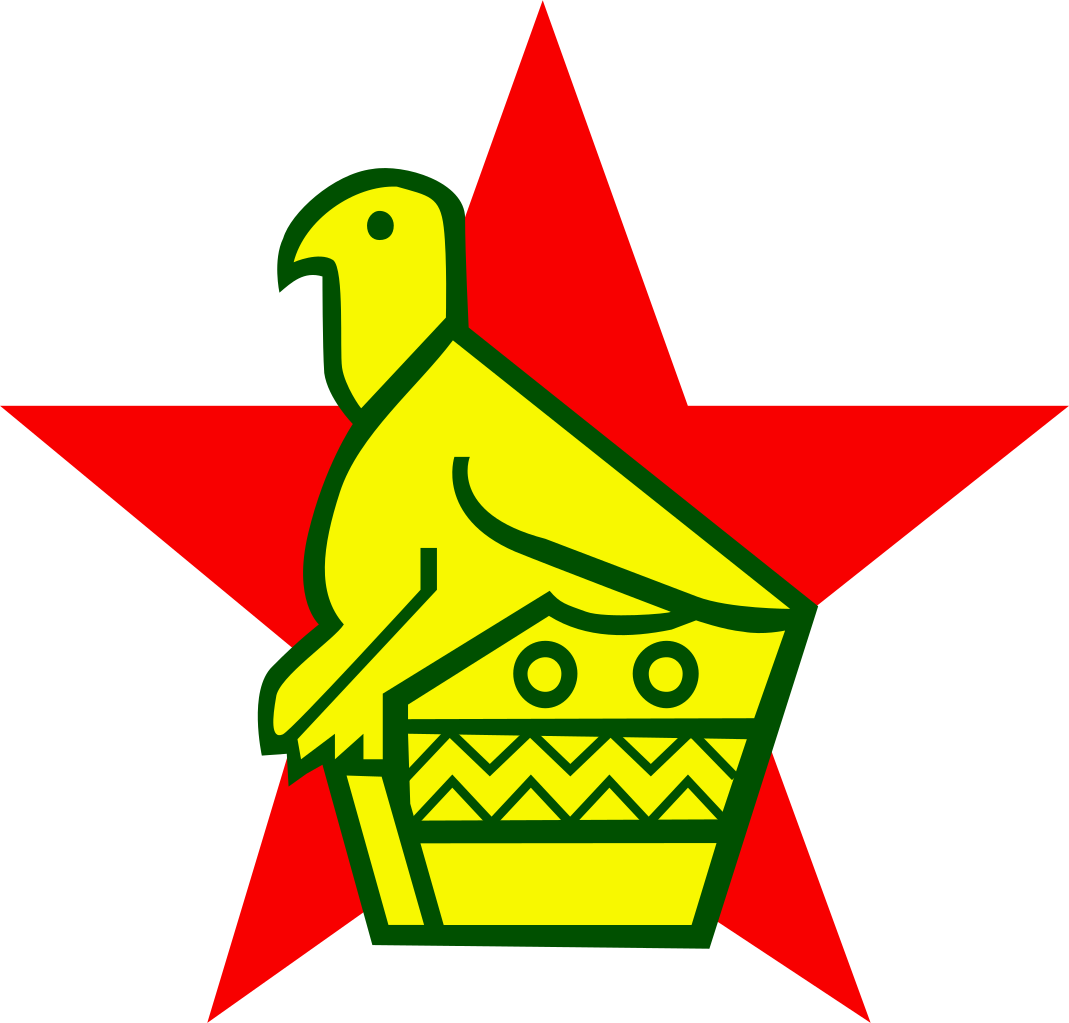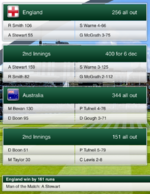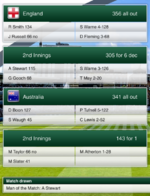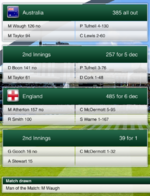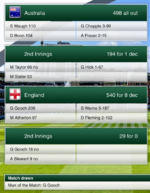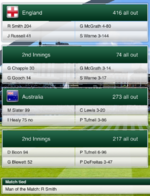Aislabie
Test Cricket is Best Cricket
Moderator
Ireland
PlanetCricket Award Winner
Champions League Winner
England XI
South Africa XI
- - -
South Africa win the toss and choose to bat
- - -
With only one Test left in the series, everything was on the line and both teams made changes to chase an elusive win. For England, that meant bringing in the extra pace of Devon Malcolm to try to take elusive wickets. For South Africa, that meant jettisoning Andrew Hutson to bring in the more dynamic Daryl Cullinan to bat in the middle order. The result was an all-Kirsten opening partnership, and one that would get second use of the Oval wicket after Wessels won his second toss of the series.
Kirsten and Kirsten started very well indeed, batting through almost two sessions for an impressive century partnership. It was not until Tufnell broke the partnership that England began to get a toehold in the game, but not until Gough and Malcolm made use of their extra pace with the second new ball that the Test match started to look like a contest between bat and ball. Indeed, Malcolm's recall to the Test side served exactly the purpose for which it was designed: he bowled a hostile spell of high pace and skill to tear out the South African middle-order: Cronje, Cullinan and Rhodes all fell in quick succession, soon to be followed by McMillan. Another Richardson rearguard threatened to occur, but was cut short by Tufnell's return to wicket-taking form. 336 all out was an excellent recovery after how the first two sessions had gone.
By the time England reached the tally raised by the South African openers, they had already lost their top four batsmen to the South African fast men - none for fewer than Stewart's 19, but none for more than Smith's 29. Thus, a century partnership between vice-captain Hick and Jack Russell was entirely welcome: the keeper made a typically nuggety 47, while Hick's century - his first in no less than two years of Test cricket - was also a very restrained and disciplined effort. The result of both contributions was that England remained in the game, a mere 25 runs behind South Africa.
In the third innings of the Test, it looked for some time as if the English bowlers had finally managed to turn the game and therefore the series firmly in England's favour: a trio of quick wickets between 60 and 80 brought to the crease the same batsmen that had been uprooted by the pace of Gough and Malcolm previously. However, any side that can boast McMillan and Richardson at eight and nine is one that will be an absolute ballache to bowl out in a hurry and so it proved: the 282 runs that South Africa were able to add to their lead were one thing, but the 99 overs they took out of the game while doing it were what really put the English batsmen in an uncomfortable position if they were to chase it down.
But you don't win five straight Test series without taking the odd risk, and Gooch made it clear by his aggressive early strokemaking that England were going for the win. He wasn't the man to get them there though, as he was dismissed by Craig Matthews for just 20. His replacement wasn't Mike Atherton as is usual, but the first-innings centurion: vice-captain Graeme Hick. With the support of a more restrained Smith, Hick made a fourth-innings century that was absolutely an example of his batting at its very best. They carried England most of the way to their target; by the time Hick left the batting crease, England needed less than 50 runs to win. The only problem was that Jack Russell was the last proper batsman left: Darren Gough isn't really a number eight.
He kept at it though, and with only ten minutes left in the day's play, England needed another 17 runs.
Matthews to Russell: 1 • 1 nb 1 • •. Only 13 to win now, and six minutes left in the day; that would be two overs.
Donald to Russell: 4 1 • nb • 1 1 A huge over for England: eight of the thirteen runs they needed. That left five runs off six balls.
Matthews to Russell: • • 4 1
What a hero. Jack Russell had seen England across the line to complete their sixth consecutive Test series win (and defend the unofficial Bannerman Shield).
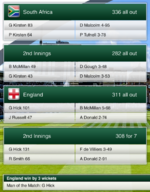
I'm also adding a Player of the Season award in the style of the Allan Border Medal - the Barrington Medal.
Standings
1. Mike Atherton - 9 points
2. Graham Gooch - 7 points
=3. Graeme Hick - 5 points (+5)
=3. Alec Stewart - 5 points
=3. Phil Tufnell - 5 points
=6. Jack Russell - 3 points (+3)
=6. Robin Smith - 3 points
=8. Angus Fraser - 2 points
=8. Darren Gough - 2 points (+1)
=8. Chris Lewis - 2 points
=8. Devon Malcolm - 2 points (+2)
12. Phillip DeFreitas - 1 point
Drawn or lost match
Best player - 3 points
2nd best player - 2 points
3rd best player - 1 point
Won match
Best player - 5 points
2nd best player - 3 points
3rd best player - 2 points
4th best player - 1 point
Best player - 3 points
2nd best player - 2 points
3rd best player - 1 point
Won match
Best player - 5 points
2nd best player - 3 points
3rd best player - 2 points
4th best player - 1 point
Standings
1. Mike Atherton - 9 points
2. Graham Gooch - 7 points
=3. Graeme Hick - 5 points (+5)
=3. Alec Stewart - 5 points
=3. Phil Tufnell - 5 points
=6. Jack Russell - 3 points (+3)
=6. Robin Smith - 3 points
=8. Angus Fraser - 2 points
=8. Darren Gough - 2 points (+1)
=8. Chris Lewis - 2 points
=8. Devon Malcolm - 2 points (+2)
12. Phillip DeFreitas - 1 point
And there we have it: he might not have been the hero at The Oval, but Michael Atherton's astonishing coming of age summer rightly wins him his first Barrington Medal.





